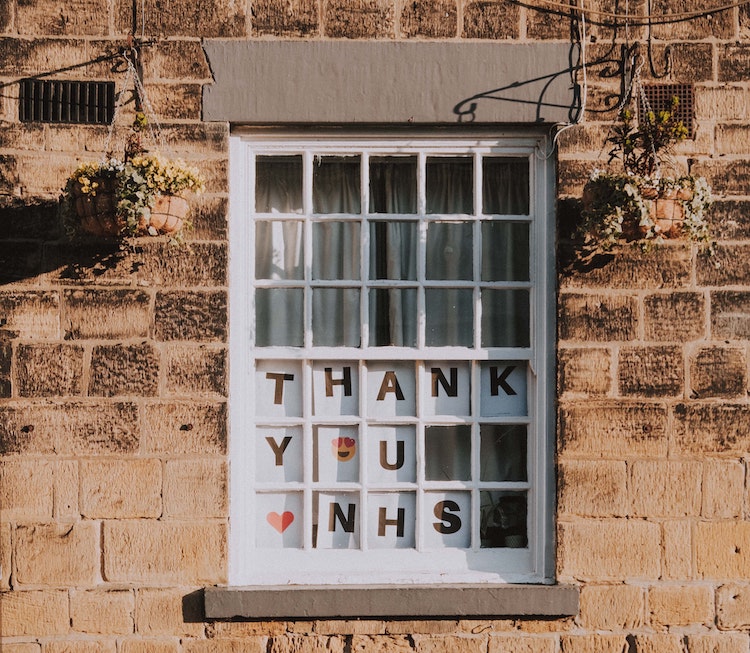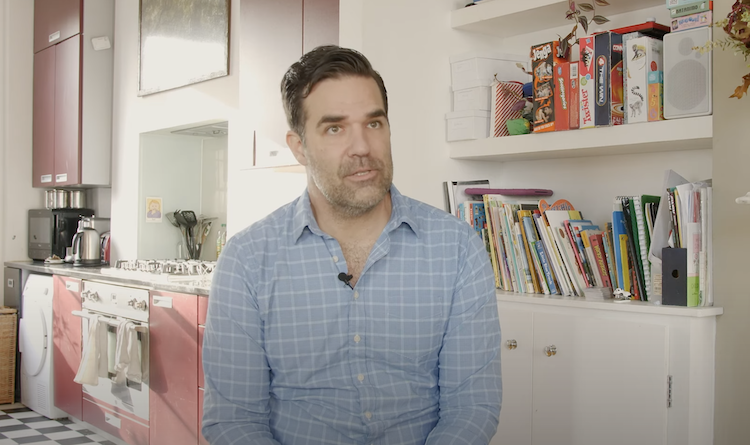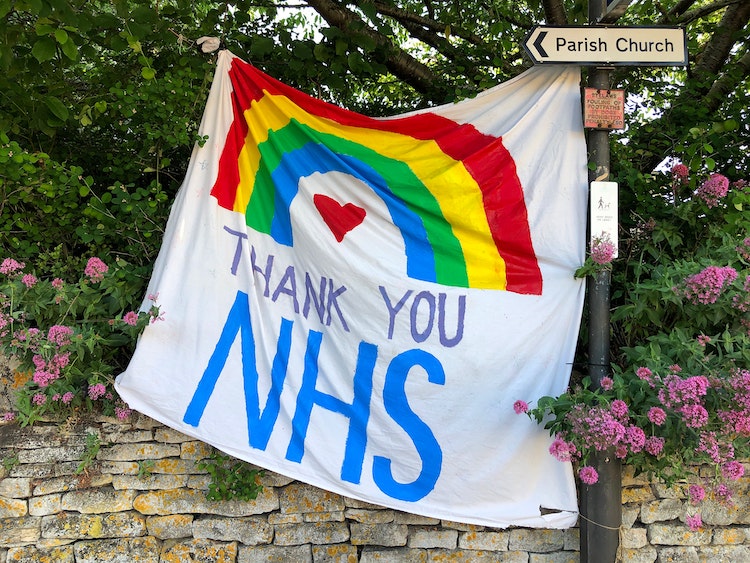
Why NHS PR is Critical to its Survival
The British public has a curious relationship with the National Health Service (NHS). We view it a bit like a wayward family member: We’re proud of it, we’re grateful for it, but there’s an undercurrent of concern that it won’t be there for us when we need it.
This stance is reinforced by the media who praise ‘our brilliant NHS workers’ in one breath and accuse the health service of ‘failing millions’ in the next.
They relish the opportunity to stick the boot in when the NHS is down because it outrages the public. And that sells papers.
As a result, the NHS PR team have a tough job on their hands. Not only do they need to highlight the many amazing things the organisation does, but they also have to counter the constant stream of negative stories.
With that said, let’s look at a few examples of positive and negative NHS public relations, and the lessons we can learn from them.
Negative NHS PR: The tragic case of Charlie Gard

This sad story is a prime example of how brutally the media can turn on the NHS. And how public opinion of a British institution like Great Ormond Street Hospital (GOSH) can swing from affection to loathing, overnight.
In 2017, the world was split down the middle on a medical ‘best interests’ case. At the centre of the controversy was 11-month-old Charlie Gard, who was born with a rare terminal disease called encephalomyopathic mitochondrial DNA depletion syndrome (MDDS).
The disease left him brain damaged. He couldn’t open his eyes or move his arms or legs. And he was unable to breathe without a ventilator.
Charlie’s prognosis was bleak. His doctors advised his parents to turn off his life support, but they refused as they wanted to take him to America for experimental treatment called nucleoside bypass therapy (NBT).
A hospital in the US agreed to treat Charlie, but the doctors at GOSH said his MDDS was so advanced, the treatment wouldn’t benefit him.
High Court ruling
As the doctors and family disagreed about Charlie’s treatment plan, the case was referred to the UK High Court. The ruling was that travelling to America would not be in the tot’s best interests.
Charlie’s parents appealed and the case was escalated to the European Court of Human Rights, but they supported the UK High Court and authorised the withdrawal of life support.
When the decision was made public, there was a severe backlash from the media and public. Press and television coverage was extensive, and social media was ablaze with impassioned opinions. A global Facebook support group called Charlie’s Army was formed to ‘protect’ the baby from the NHS.
Following the ruling, GOSH released a statement explaining the rationale behind their decision. But it could not compete with the emotions of two desperate, grief-stricken parents.
GOSH, one of the most renowned children’s hospitals in the world, came under attack. Doctors’ clinical opinions were thrown into question and staff received vile abuse and death threats. The shocking slurs about GOSH kept on coming as Charlie’s Army demanded ‘justice’.
US involvement
Donald Trump and the Pope even waded in on the matter. In America, US media outlets referred to Charlie as having been ‘taken prisoner by the NHS.’ Some commentators used the case as a cautionary tale against public healthcare. They painted the UK health service like some kind of Orwellian dystopia.
The parents’ pro-bono PR representation got them access to every magazine and news show. They sold stories and pictures, created masses of hype and used social and traditional media to their full advantage.
In the end, there were no winners or losers. Charlie’s parents gave up on their appeal and little Charlie passed away in a hospice shortly afterwards.
Following his death, GOSH released another statement addressing the questions raised by Charlie’s parents and their army of followers. It reflected that they had a lot to learn from the ‘bruising’ court case and suggested the people who had fuelled Charlie’s parents with false hope, ‘will also find much upon which to reflect.’
The PR lesson:
A golden rule of PR crisis management is to have grace and humility under pressure. This means not showing up to every fight you’re invited to. There’s a time to speak, and a time to stay quiet. Coming back strongly against the parents would have tarnished GOSH’s reputation further.
However, another golden rule is to gain control of the narrative. It was difficult for GOSH to compete with the volume of Charlie’s Army and the media whilst remaining respectful of Charlie and his parents. But there’s a lesson for the NHS public relations team to learn about ensuring that science is delivered within the context of emotion: Don’t forget the importance of engaging hearts, as well as minds. Facts need a champion to connect people to them.
Read more about the Charlie Gard case: Ethics and PR: The Charlie Gard Case.
Positive NHS PR: The Henry Delaney case

This is another heart-wrenching story of a poorly baby, but it has an altogether more positive outcome for the NHS.
American expat author, actor and comedian Rob Delaney was living in London when his 11-month-old son Henry was diagnosed with a brain tumour. The baby boy was treated on the NHS for 21 months, but tragically passed away at the age of two.
Rob Delaney has spoken candidly about his experience of the NHS in a video for the Labour party’s 2019 election campaign. He called the doctors and nurses who looked after his son, ‘my heroes ‘til I die’ and went on to call the NHS the ‘pinnacle of human achievement’.
Delaney also penned an article in the Guardian in which he said, ‘the stress you feel surrounding your health in the UK is so much lower than in the US, thanks to the absence of financial fear.’
Delaney’s glowing endorsement wasn’t enough to win Labour the 2019 general election, but it did wonders to win over the hearts of the media and Great British public.
The PR lesson:
The power of celebrity endorsement has long been known to add immediate, tangible value to a brand. It was clear that Rob Delaney’s impassioned defence of the NHS was not a commercial arrangement but a genuine, authentic endorsement.
Authenticity will make or break a celebrity affiliation. If there’s a hint of cynicism or disingenuousness, it will damage your credibility rather than give it a boost. In short, it pays to be real.
Read more about How to Use Influencers to Supercharge Your PR Campaign.
Negative NHS PR: The WannaCry cyberattack
Sometimes, the NHS is a victim of its own shortcomings, rather than the media.
In 2017, the NHS was crippled by the worst cyberattack they’d ever encountered. Dubbed ‘WannaCry’, the assault impacted businesses across the globe. The attackers used ransomware (an insidious form of malware that blocks access to sets of data), and demanded a ransom be paid to release it.
The co-ordinated attack by cybercriminals targeted a vulnerability in the Windows operating system. When it made its way into the NHS, it quickly travelled from PC to PC. As a result, staff could not access vital medical records, meaning treatment had to be cancelled and ambulances diverted. Phone lines were down in hospitals across the country, and A&E departments had to close.
The cyberattack began on the morning of 12th May but a major incident wasn’t called until 4pm, and emergency procedures were not initiated until 6.45pm. It took a week to find the ‘kill switch’ and stop the virus spreading further.
Operation Crisis Comms
Publicly, the NHS’ response was haphazard and disjointed. It lacked a credible security spokesperson from the NHS to stand up, provide reassurance, and guide the public through the turbulence that the cyberattack created. But this didn’t happen.
This made the NHS look amateurish to the public. The lack of comms meant people turned up for appointments that were cancelled without explanation; others couldn’t get their prescriptions filed, and other people couldn’t get through to anyone on the phone.
There was also the issue of how the NHS were vulnerable in the first place. Although they were not targeted specifically, the organisation’s reliance on old software that didn’t protect it against ransomware left the service vulnerable. There was also a warning given a year previously, which the NHS didn’t respond to publicly until June 2017. The report from the investigation by the National Audit Office is damning to say the least.
The PR lesson:
The NHS holds a rich vault of personal data about almost every citizen in the UK. We need to be reassured that this data is secure.
When data security is brought into question, an organisation should respond quickly to minimise reputational damage. A confident and credible spokesperson needs to address the issue immediately. Rules around data protection have improved since 2017, but every company is still at risk of a cyberattack. You need to factor this into your crisis communications plan, so you’re not caught short like the NHS.
Find out more: Comms Lessons from the WannaCry Cyberattack.
Positive NHS PR: COVID-19

The pandemic has been a massive shock to the NHS and the people who work for it. It has put unprecedented demands on acute care and intensive care units have been pushed to the limit. There has been an unavoidable knock-on effect on all areas of the NHS that will take decades to recover from. From an NHS PR perspective, the pandemic has meant the service has garnered unprecedented public support. And rightly so.
In 2019, satisfaction with the NHS was at its lowest for over a decade. The percentage of the public who said they were satisfied with the performance of the NHS fell to 53% in 2018, the lowest since 2007.
In 2021, 44% of people said they have become more satisfied with the running of the NHS as a result of the COVID-19 crisis.
Are waiting lists down? Nope. Are ambulance response times hitting targets? Far from it. So, what’s changed? Essentially, the spotlight was on the NHS. The world was watching. And they didn’t screw it up. In a situation where the spotlight is on you, you’d better look good.
While the public looked on, retired doctors and nurses returned to the front line. Healthcare workers turned up to work every day despite the risk, with inadequate PPE. They watched their colleagues getting sick and dying but kept on showing up. That is the epitome of heroism.
Rainbow posters
Many of our European neighbours were so ill-equipped for COVID-19, they were overwhelmed. Their intensive care units were full. There were no ventilators and people were dying in their homes. But in the UK, everyone who needed an intensive care bed and a ventilator got one. And once the NHS was given the reigns on the vaccine rollout, targets were exceeded by months.
The NHS literally saved the country, and we showed our gratitude in various ways: every house had a rainbow poster in the window. Celebrity tributes poured in. At 8pm every Thursday, people stood on their doorsteps clapping for our NHS heroes. The inspirational Captain Sir Tom Moore grabbed his medals and walking frame and raised a staggering £33million for NHS charities.
Love and gratitude for the NHS and the people who work for it are at an all-time high.
The PR lesson:
If you know all eyes are on you, you need to perform. You won’t get away with a poor show when there’s nowhere to hide. Remember what Warren Buffett said: ‘It takes 20 years to build a reputation and five minutes to ruin it.’
If the world is watching and you flourish, the memories will be a monument to your success.
Find out more about Reputation Management: How to Win Customers and Influence Stakeholder.






